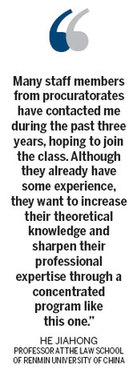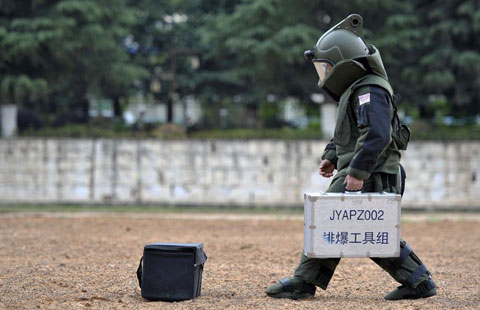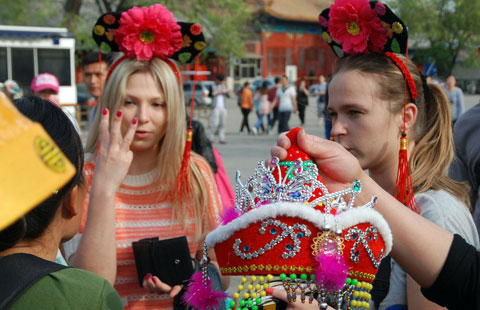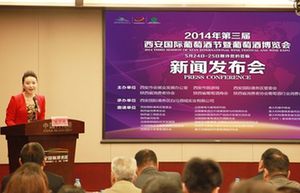Graduates hope to bust graft in China
By Zhang Yuchen, Wu Wencong and Tang Yue ( China Daily ) Updated: 2013-08-21 07:41:33
 |
|
Staff members of the Procuratorate in Fuzhou, the capital of Fujian province, visit an anti-corruption exhibition held at a prison in the city. [Photo/Xinhua] |
High ethical standards
At the start of the first year, He and the students agreed that the students would not offer gifts to the teachers and if students and teachers dined out together, the teachers would pay their own way. The students also designed their own class badge to inspire a sense of pride and responsibility.
 The course will help make the fight against corruption more professional and specialized, said Ren Jianming, a professor at Tsinghua University who is a specialist in the study of corruption.
The course will help make the fight against corruption more professional and specialized, said Ren Jianming, a professor at Tsinghua University who is a specialist in the study of corruption.
He, the course director, is unhappy that only around half of the graduates have joined the procurator's office. He conceded that some would have been discouraged by the knowledge that they would have to take the civil service entry exams that are a requirement for all who wish to enter the system.
Recruitment for this year's intake will begin in the first week in September and the course will start in October. He has already received a number of e-mails from prospective students who expressed an interest in attending the course.
He has his own ideas and expectations for the class and guaranteed that the contents will be weightier in the future, with more input from lecturers already working within the system.
The number of places on the course has been reduced from 24 to 18 to ensure that each teacher is responsible for no more than three students.
"Many staff members from procuratorates have contacted me during the past three years, hoping to join the class. Although they already have some experience, they want to increase their theoretical knowledge and sharpen their professional expertise through a concentrated program like this one," he said. "This may be one of the biggest changes for the program in the future."
Great expectations
Suspicion and criticism have been constant factors since the program was launched. Some experts think it focuses on trifling matters. In public comments made in 2010, Wang Guixiu, a retired professor from the Central Party School, described the course as, "a waste of time and effort on useless stuff rather than focusing on the things scholars have been calling for over many years."
He said he is under no illusion that the students who emerge as fully fledged investigators will somehow sweep the country clean of corruption overnight. He warned that even good apples can turn bad.
"In fact, it wouldn't surprise me if one of them is exposed as a corrupt official someday," he said. "I can only be responsible for their time on campus, but, of course, some may go out of control later on."
Li felt that many commentators harbor unrealistic expectations for this small group of graft-busting graduates and fears that the public expects too much, too soon.
"Some online commentators have said they will look at our post-graduate work in the procuratorate and assess the effectiveness of our anti-corruption work, but this is a long-term project and I think people are overestimating the effect we can have in the short term," said Li.
|
|
|
|
|
|
|
|


















 Op Rana
Op Rana Berlin Fang
Berlin Fang Zhu Yuan
Zhu Yuan Huang Xiangyang
Huang Xiangyang Chen Weihua
Chen Weihua Liu Shinan
Liu Shinan